Having survived the snorkeling trip to Los Túneles without a relapse in my illness, for Christmas Day I headed out on the second tour I’d organized for Isabela Island – a hiking tour to Sierra Negra and Volcán Chico.
Once again, the day began overcast and, as we bused to the starting point of the trail, we ascended into fog. We stood in light drizzle as our guide explained it would be a 16km hike, and I almost had to laugh at the enormous groan that went up from the other 12 people in the group. My reaction was “OK – let’s go”, even with lungs full of fluid from the flu, but clearly I’m starting from a different hiking baseline than the majority of people.
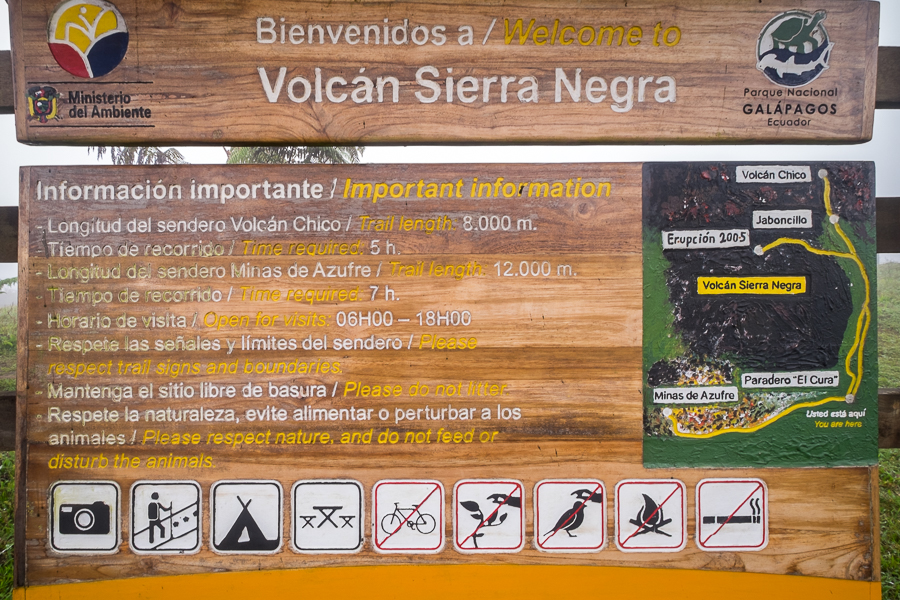
We hiked the first 3km in fog. It was nice and cool and very enjoyable chatting with a couple of my fellow hiking companions.

What wasn’t so nice was that when we got to the first of the viewpoints, we could see absolutely nothing.
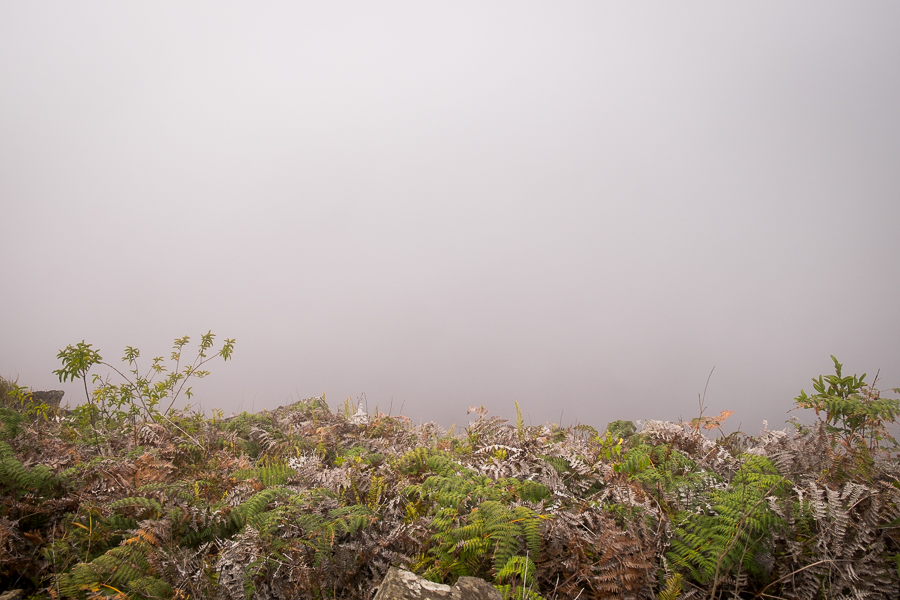
Our guide explained that this was common at this time of year when the ocean currents and winds push cloud up against the southern side of the mountain. He suggested we continue to the next viewpoint and perhaps we’d have better luck there…
Ummmmm…. Nope. I didn’t even bother to take a photo. On to the third viewpoint…
Fortunately, here the fog was starting to clear and we could see part of the second-largest caldera in the world (the largest is Mauna Loa in Hawaii).

The caldera of Sierra Negra is about 10km wide, and looking out across such an enormous expanse of flat, black, cooled lava is incredible.
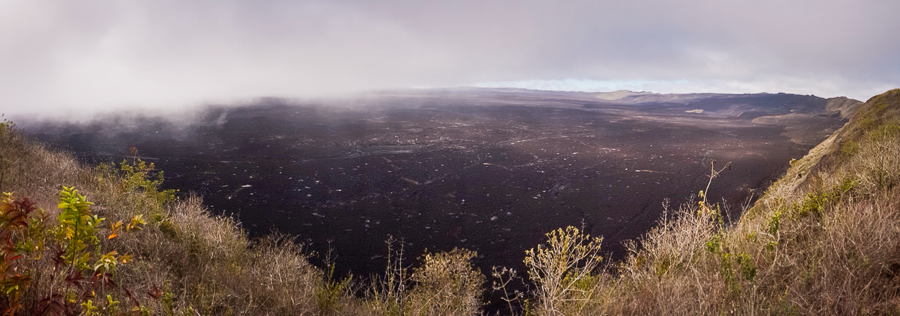
Different patterns in the lava of the floor of the caldera told the story of its formation – if only I could have interpreted it. I keep coming back to the idea that I should have continued my studies in Geology…
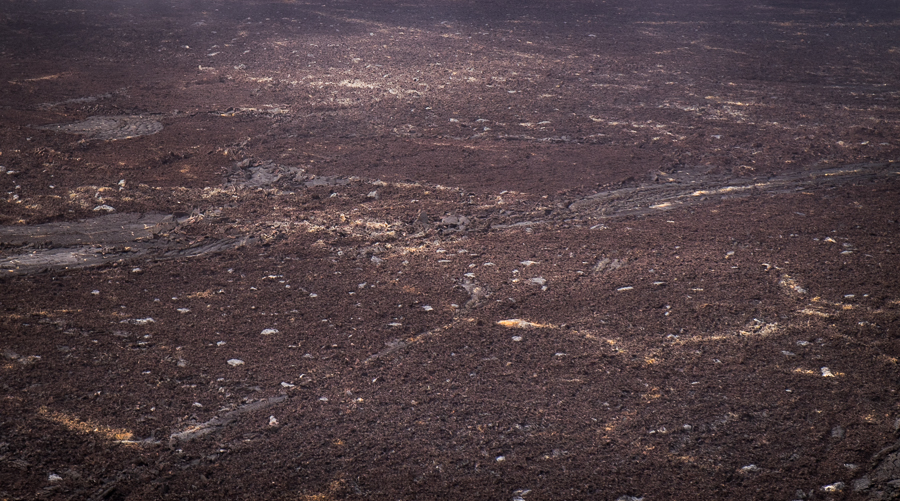
We spent about 20 minutes admiring the view, then hiked a further 2km to Volcán Chico.
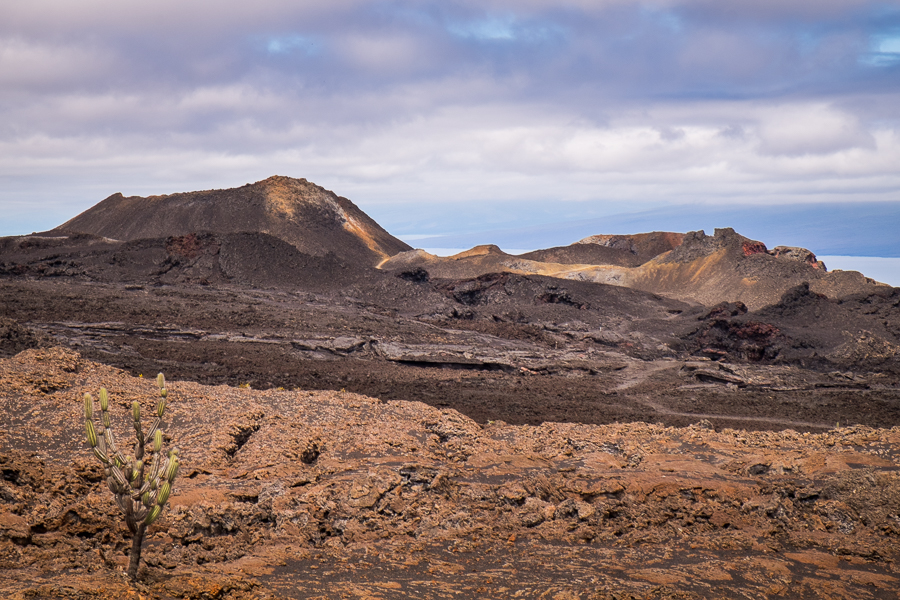
With the fog gone, the equatorial sun beat down savagely and this last part of the hike quickly became very hot. To distract us, our guide highlighted the features of the volcanic landscape we were walking through (until this point we’d been walking along what was effectively a road). He pointed out lava tunnels and areas where small explosions had occurred, and explained the differences between a’a and pahoehoe lava.

The views from Volcán Chico (not actually a separate volcano, simply the most active part of Sierra Negra) were fantastic, and would have been really incredible on a clearer day. Again – being able to see the vast, barren lava plains of Isabela Island is amazing. I think it is the flatness and the complete lack of vegetation that makes it really capture my attention.
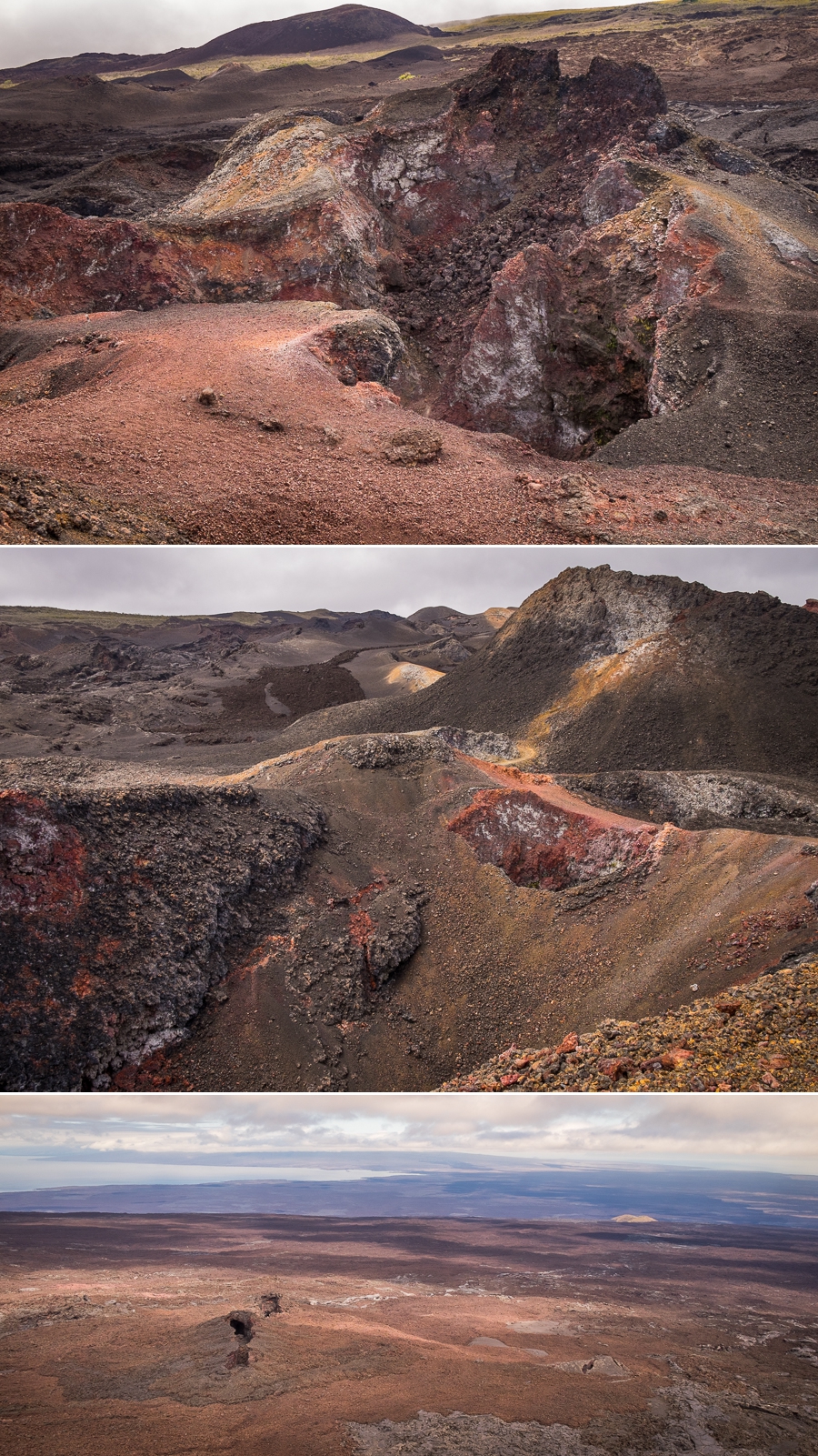
We spent about ½ hour at Volcán Chico before starting the return journey. The final viewpoint of the caldera was even clearer this time and I managed to steal about 10 minutes there by myself just admiring the view and relishing the silence.

I walked most of the way back by myself noticing the different types of flowers that grew every now and then along the side of the road (I was too busy talking to notice them on the way up). As the fog closed in around me offering some cool relief, I was a very happy camper having had the opportunity to see the caldera.
Recommendation
This is a great day trip on Isabela Island if you are prepared to walk 16km. It is not a difficult hike, though the sun can be very strong and hot, making it feel more difficult. Bring loads of sun protection (hat, sunscreen, sunglasses) even if the day looks like it is going to be rubbish.
Time: About 7 hours in total
Cost: $30 includes transport, boxed lunch, guide
